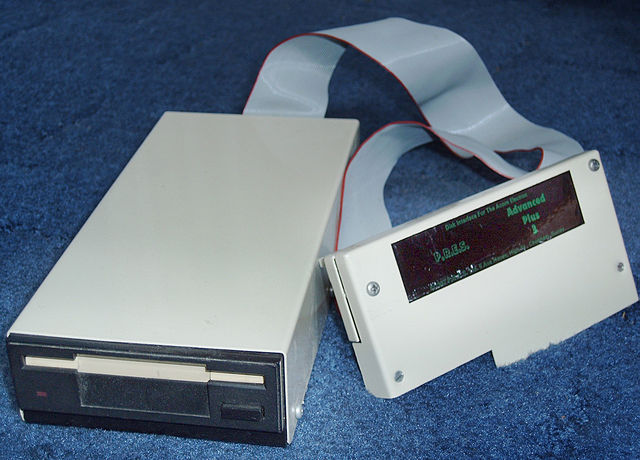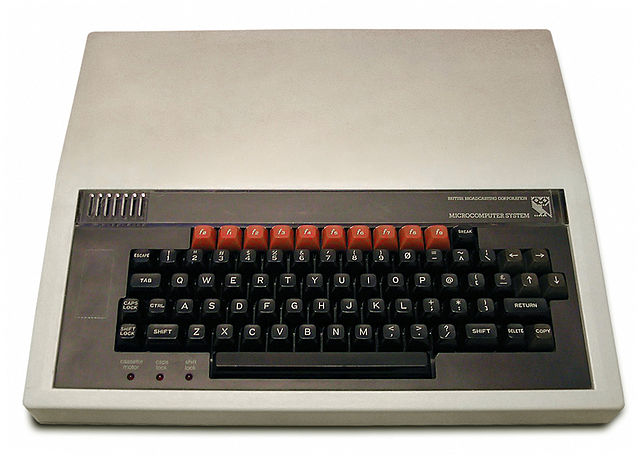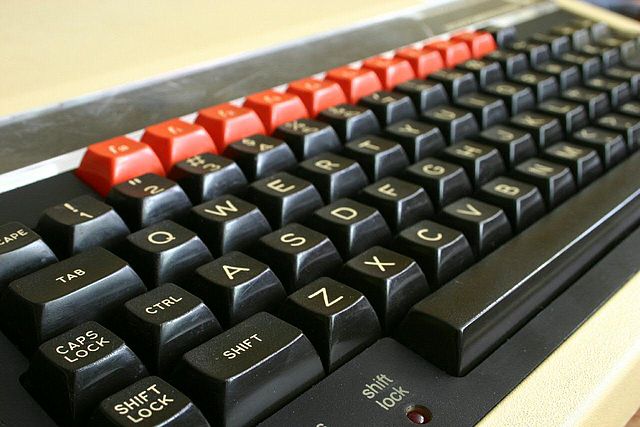The Acorn Electron was a lower-cost alternative to the BBC Micro educational/home computer, also developed by Acorn Computers Ltd, to provide many of the features of that more expensive machine at a price more competitive with that of the ZX Spectrum. It had 32 kilobytes of RAM, and its ROM included BBC BASIC II together with the operating system. Announced in 1982 for a possible release the same year, it was eventually introduced on 25 August 1983 priced at £199.
Acorn Electron
An Acorn Electron with Plus 1 expansion unit attached
The PRES Advanced Plus 3 with a 3½-inch drive
Acorn ALF03 Data Recorder
The British Broadcasting Corporation Microcomputer System, or BBC Micro, is a series of microcomputer designed and built by Acorn Computers Limited in the 1980s for the Computer Literacy Project of the BBC. Designed with an emphasis on education, it was notable for its ruggedness, expandability, and the quality of its operating system. The machine was the focus of a number of educational BBC TV programmes on computer literacy, starting with The Computer Programme in 1982, followed by Making the Most of the Micro, Computers in Control in 1983, and finally Micro Live in 1985.
BBC Micro Model A/B (standard configuration)
Some of the BBC Micro team in 2008
Keyboard of a Model B, one of two very similar designs used on the model
Rear of the BBC Micro. Ports from left to right: UHF out, video out, RGB, RS-423, cassette tape, analogue in and Econet.








